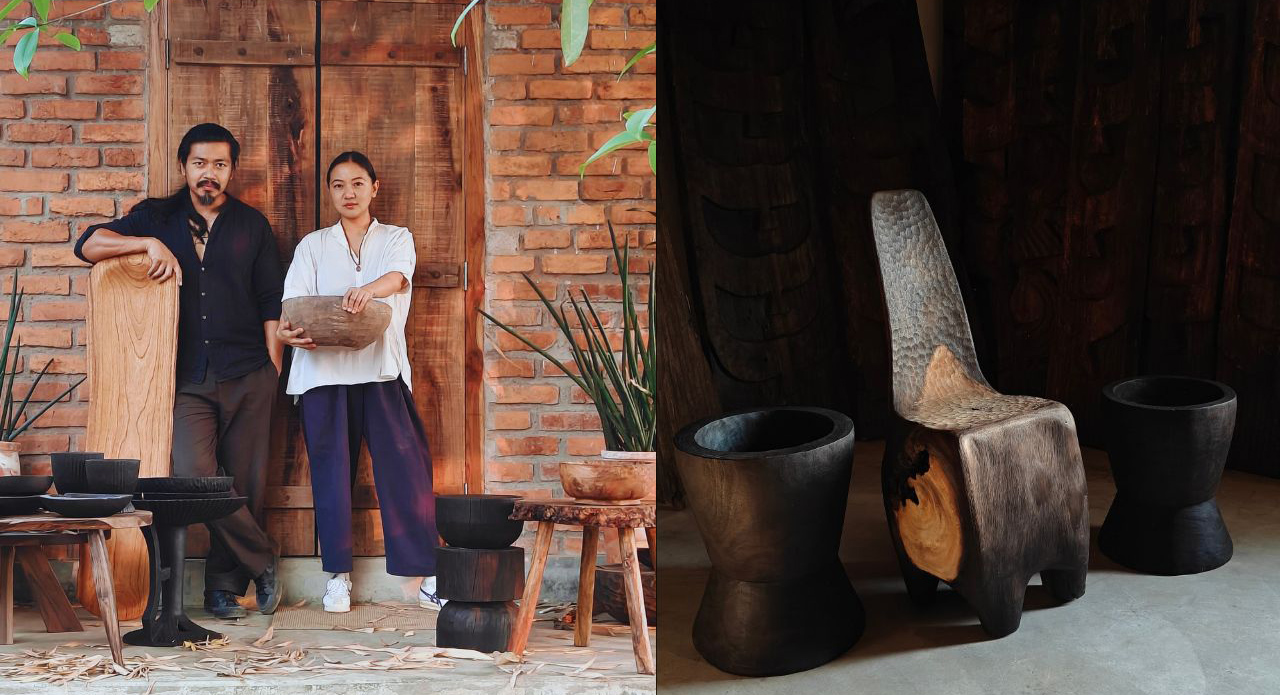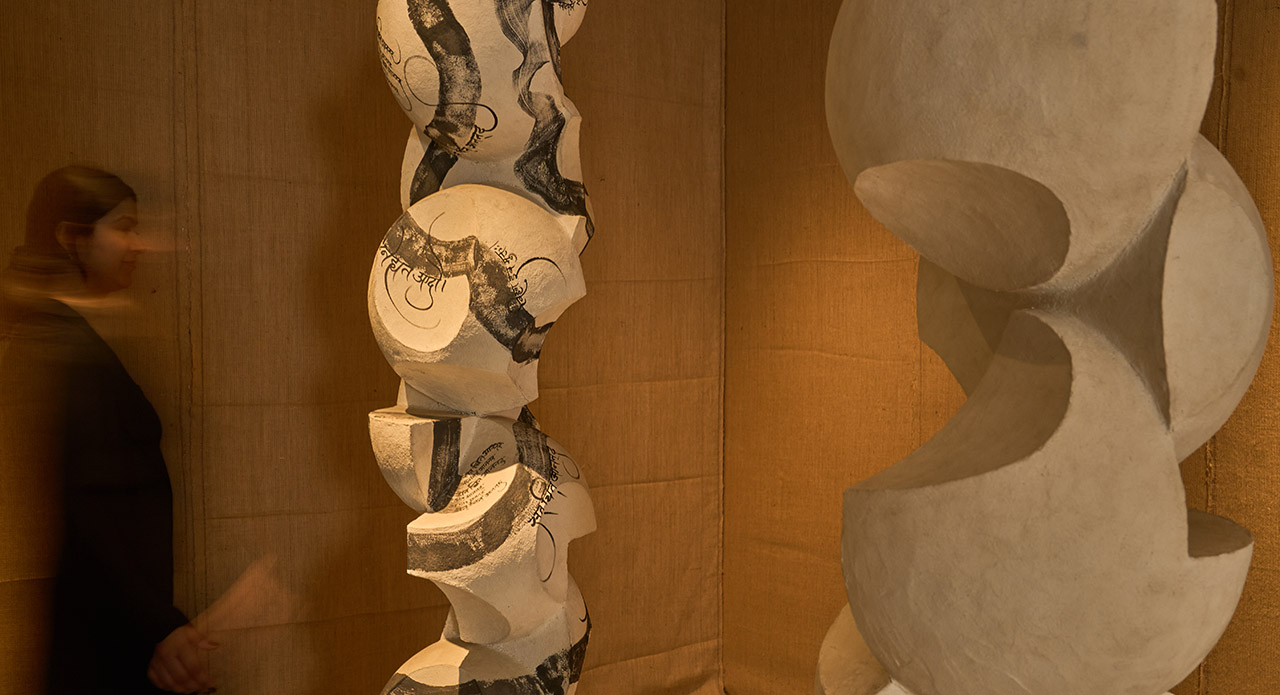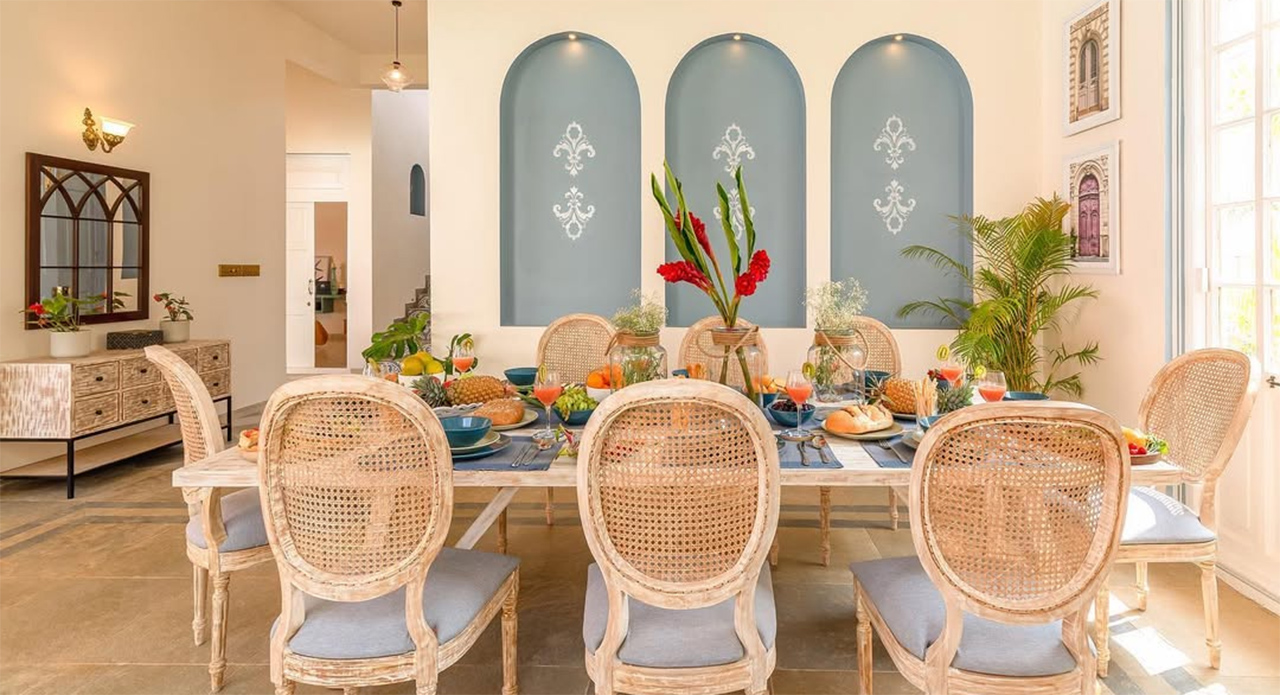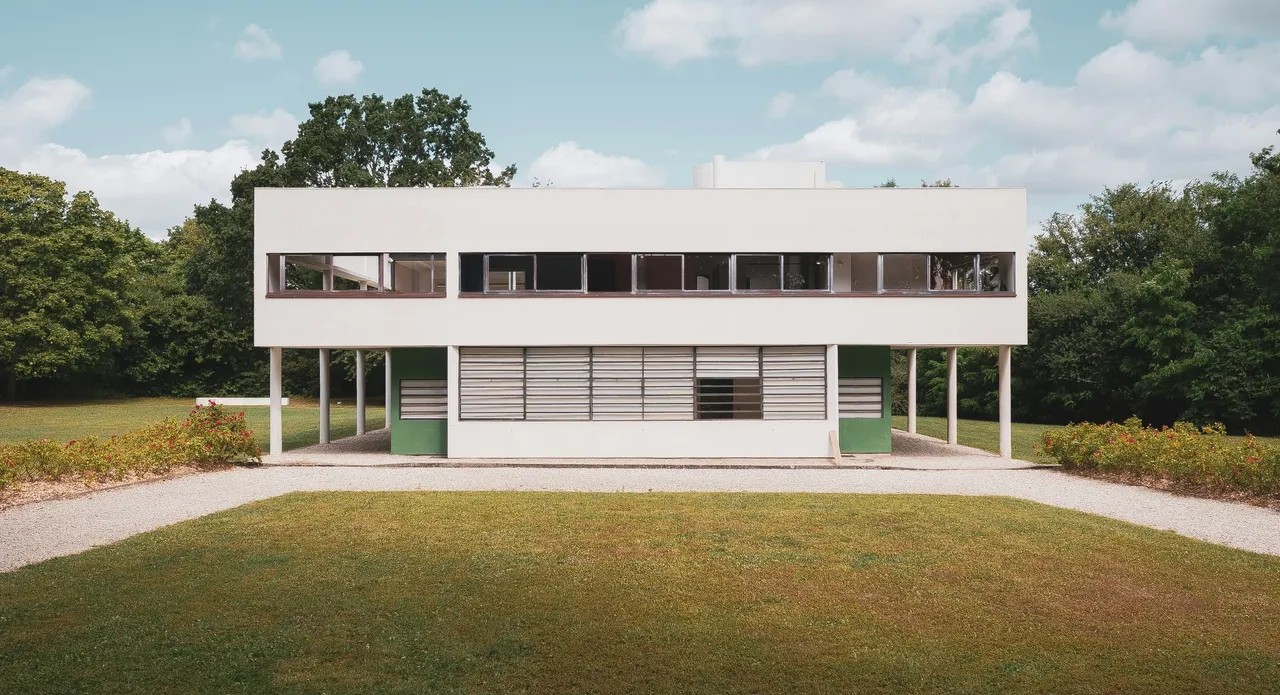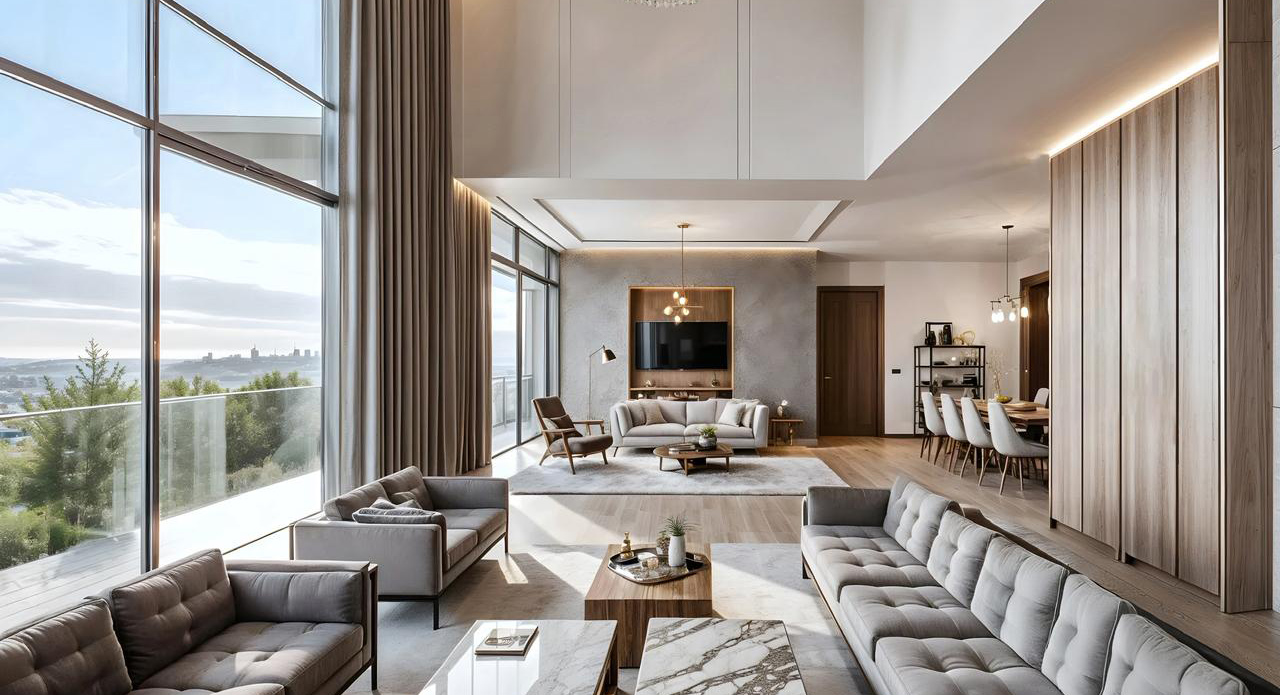Every time you’ve heard a wine lover sing praises of the wine, talking about bouquets and flavours at great length, you can never imagine the biggest tool that allows such in-depth understanding. It can come across as pretentious and unrealistic, but the glass in which the wine is poured makes a world of a difference in how you appreciate it. By choosing the appropriate glass, you unlock the full sensory experience that the winemaker or distiller intended.
European glassware companies have used this drinking experience as the primary motivation for their Innovation and design. Take the 152-year-old German brand, Zwiesel Glas, who has spearheaded some of the biggest glassware trends over the decades. For example, they introduced the first machine-blown lead crystal glass series, Neckar, in 1962. In an interview with Outlook Luxe, Dr. Andreas Buske, Owner and Director of the Board of Zwiesel Kristallglas AG explained the company has always echoed the possibilities inherent in glass. “We strive to create unique products at the highest level of manufacturing skill and craftsmanship that offer extraordinary experiences of enjoyment and community. Products that lend a special touch to every table setting and are simply part of refined taste worldwide,” he said.

Dr Buske was in India recently for an evening introducing Zwiesel glassware to Indian audiences. The evening was hosted at luxury décor, art and furniture retailer, OMA’s Delhi store. OMA is among India’s premier luxury and lifestyle brands, offering its discerning customers the finest portfolio of international design. With 13 outlets across key Indian cities and active digital/referral channels, Dr Buske finds them to be the perfect partner to cater to India’s discerning customer base and aspirational trendy users.
Edited excerpts
1. How has the 150-year-old legacy of Zwiesel Glas helped the present and the future?
Eating habits, lifestyles, family structures, everything is changing. We want to help shaping these developments. We are constantly adapting to the needs of the market. We want our customers to come back as enthusiastic buyers, then we have done it right. One of our recipes for success is certainly our focus on class instead of mass and the Made in Germany production of relevant assortments for both the upscale hotel and gastronomy sector as well as premium retailers all over the world. Coupled with an excellent service this is what our customers appreciate. Our great trump card is that we are constantly developing as a company and consistently pushing our themes – brand and market development as well as high-quality manufacture and machine production. The Zwiesel Glas brand has established itself as the new standard for sophisticated drinking culture. Because: The glass makes the difference, this applies to both private and professional hosts.
2. How has Zwiesel Glas stayed relevant with changing consumer preferences?
Zwiesel Glas has successfully stayed relevant in the face of changing consumer preferences through several strategic approaches. Back in 2002 we have introduced Tritan® crystal glass, which is known for its durability, brilliance, and dishwasher safety. This innovation meets modern consumer demands for both aesthetic appeal and practicality. We also collaborate with renowned designers to create contemporary and stylish glassware collections. These partnerships ensure that our designs remain fresh and aligned with current trends. Moreover, we offer a wide range of products which allows us to appeal to a broad customer base.
One of the most important aspects to stay relevant with changing consumer preferences is a strong brand identity. We relaunched as Zwiesel Glas in 2020 and we have created a new brand experience around our premium positioning with new packaging, new imagery, new advertising materials, and a new digital presence.
Read Also – Exquisite Home Décor Must-Haves To Add Oomph To Your Home

3. Traditionally, Zwiesel glassware was found in Indian five-star hotels and restaurants. While they are crucial to business, how has reaching out directly to the consumer helped business growth in India?
We have been in the hospitality business since 2010, paradigms have shifted post-pandemic and we are now developing our brand business strategically in the Indian retail segment. Since our relaunch, we have successfully led positive developments in the Indian retail business. One of the USPs of Zwiesel Glas is that we have a wide range of products with a wider spectrum of price points which allows us to equip different target consumer profiles right from trendy users with younger demographics to a serious Connoisseur or to a person who is simply a lover of the grape. This is made possible by our dual-brand strategy: with the brand Schott Zwiesel we offer attractive entry-level ranges for the upper medium market, and with Zwiesel Glas we serve the needs of the upscale to high-end uber wine aptitudes. Our target audience in India is the upper medium market to luxury market (inc. handmade products). However, our efforts continue to ensure a good quality product and memorable experience in the hands of every Indian.

4. How important is India as a market for the company? What is your long-term goal/vision for this market?
The Indian glassware market is currently experiencing phenomenal growth, fuelled by a variety of converging forces. One notable trend influencing this market is the increased desire for glassware that flawlessly combines functionality and aesthetic appeal. This renewed emphasis on both design and function has resulted in a huge increase in the demand for attractive and adaptable glassware solutions. Furthermore, there is a noticeable movement in consumer preferences toward eco-friendly options, which boosts the appeal of sustainable glassware made from recycled materials or organic production techniques.
Sudden urbanisation in India, combined with rising disposable incomes, has resulted in a growing consumer base, especially in Tier 1 and Tier 2 cities. The rapidly expanding e-commerce scenario in India has transformed the retail sector, giving glassware makers unparalleled access to a larger consumer base. Given the current market dynamics and growth potential, India has emerged as a focus market for Zwiesel Glas. We recognise India’s significance not only for our present operations but even more so for our future expansion plans. Zwiesel Glas is committed to strengthening its presence in the Indian market and sees substantial opportunities for growth in the coming years.

5. What is the importance of innovation in glassware and serveware? How are you focussing on it?
Innovation in glassware and serveware is crucial for several reasons. To further meet consumer preferences, staying up to date with contemporary designs and appealing to modern consumers who value both form and function, you simply need to constantly strive for innovation. At the same time, innovation is important to differentiate from your competitors. You need to find unique features that set a brand apart from competitors. Zwiesel Glas has already a long time ago discovered the need for innovation. We set new standards in the glassware and serveware industry, e.g. through our merger with Fortessa Tableware Solutions, making us a ‘one-stop-shop solution’ for our professional customers. Probably the most impressive example of what can be achieved when craftsmanship technology and innovation are perfectly harmonised is our hybrid glass series, Duo, which was launched on the market in 2023. Zwiesel Glas utilises the unique combination of its own glass manufactory – one of the largest and best in the world – and the largest machine production facility in Germany for its production in the premium segment of the glass industry. Duo combines the best of both worlds: The highly functional top is machine-made in Zwiesel, while the wafer-thin stem and the wide base plate are the result of Hungarian craftsmanship. Our successful endeavours for constant innovation have been honoured with numerous awards.

6. What are the key hallmarks of the award-winning Journey Collection?
The Journey Collection has been developed in cooperation with renowned designer Sebastian Herkner. He is especially known for furniture and has won multiple awards worldwide. Journey is his first and only drinkware collection. We launched Journey in 2022, so in the year of our 150th anniversary. The idea was to represent the company’s milestones through the design. In the stems of the series, you can see a timeline. The most notches can be seen on the sparkling wine glass. This glass is therefore the highlight of the series. The notches have not been cut in a second production process, but are already in the mould of the stem, i.e. it is all done at once. This production technique is a core production technique from Zwiesel. Therefore, the Journey collection is even more suitable as a representative anniversary collection.

7. What are the other new collections that have been launched? And how are they different from what’s available in the marketplace currently?
We have launched two new products this year: the Level wine tumbler series and the Symbiosis decanter. Both have already been honoured with multiple prestigious design awards, which is a proof of their relevance. Level is the first wine tumbler series from Zwiesel Glas. Three tumblers provide the perfect setting for enjoying sparkling wine, white wine and red wine in a minimalist, straightforward and reduced-to-the-essentials setting. Level is the epitome of uncomplicated drinking pleasure. Symbiosis combines archaic and delicate aspects of nature with fine crystal glass and selected stone. The decanter is covered in the finest craquelure, giving the impression of great fragility. Contrasting with the natural, pristine stone base, this symbiosis has a very special visual appeal. The decanter and base nestle together in their precisely harmonised shapes. In Symbiosis, the traditional craftsmanship of the glassmaker merges with that of the stonemason. Together, they create a handmade, exclusive and unique piece that is unrivalled. The decanter is handmade in small quantities by master glassmakers in Zwiesel, while the soapstone base is quarried and worked in Finland. This ensemble is completed with a high-quality felt underlay.

8. Is it a business that can follow the tenets of environmental sustainability? What are the steps Zwiesel Glas is taking in this direction?
We have implemented an environmental management system certified according to ISO 14001 to ensure a sustainable corporate concept with consistent product quality Made in Germany. In addition, our measures to improve the environment and production sustainability are reviewed annually as part of external audits. Our detailed analysis of all raw materials associated with production aims to avoid contaminants from the onset and to use recyclable materials wherever possible. We rely on regional raw materials (particularly quartz sand, a key ingredient) and sustainably reuse glass from our production to guarantee short transport paths. We also give preference to regional energy sources for our production plants. We are committed to continued process innovation to minimise our energy use in glass melting. We are particularly proud of our oxyfuel technology, which significantly reduces our carbon dioxide and nitrogen oxide emissions. This technology enables us to use 30% less energy in production compared to conventional gas-heated glass melting furnaces.

9. What are your growth and future plans for Zwiesel Glas globally?
On the one hand our future growth plans for Zwiesel Glas globally revolve around consistently expanding our two-brand strategy in the glass sector with a customer-centric approach around our different target groups. We aim to develop additional product ranges in the attractive premium entry-level segments as well as high-end designer collections in the luxury segments. In this process, we will not only continue to work on and further develop our production technologies at our manufactory in Hungary and at our Zwiesel site in Germany (where we produce up to 60 million glasses annually), but also expand our strategic collaborations with important partners such as winemakers and Michelin-starred chefs to further grow In the consumer and professional segments.
On the other hand, we are consistently developing in the area of complementary product ranges to offer our customers a holistic experience, starting from the premium Zwiesel glasses on the table. What we already offer in the professional segments, namely concepts for the entire table setting consisting of glass, dinnerware, cutlery, and other accessories, is an integral part of our vision to become not only the world market leader for the upscale glass sector but also for the complete table setting. We will pave the way for this in the coming months and years.




